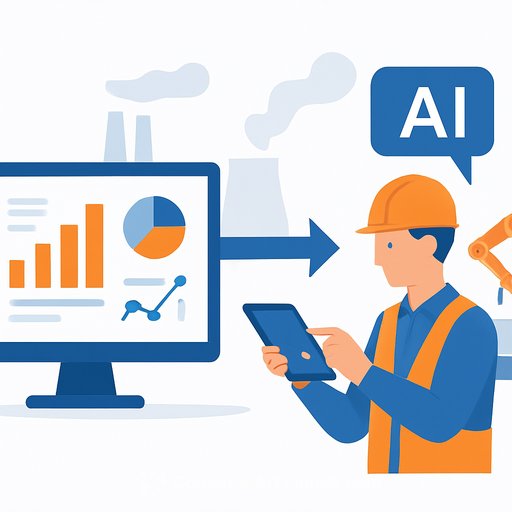Why Hotels Struggle with Tech Adoption-and How AI + Education Fix the Gap
Operations teams keep asking the same question: why do hotels lag on digital transformation and AI while retail and restaurants move faster? Budget constraints are part of it, but not the core issue. Adoption stalls because operators don't see clear, quantifiable value in day-to-day workflows. No clarity, no buy-in, no rollout.
The Adoption Gap: What's Really Blocking Progress
- Past projects missed ROI or created new friction.
- Tools felt built in boardrooms, not lobbies.
- Budgets squeezed by OTAs and rising costs.
- The real blocker: lack of clear, operationally grounded value-what it does, how it fits, and why it pays off.
AI at the Edge vs AI in Operations
Most hotel AI sits at the guest-facing edge: chatbots, automated emails, upsell tools. Visible, low-risk, easy to justify. The bigger upside sits in operations-where time, labor, and utilities live.
- Staff scheduling that reduces overtime and churn.
- Room assignment that aligns readiness with preferences.
- Energy optimization that trims utility spend without hurting comfort.
- Predictive maintenance that prevents outages.
These areas deliver fast ROI, yet adoption is slow because value isn't obvious until it shows up in the P&L.
Education First: The WHAT, HOW, WHY
"Digital transformation" sounds expensive and disruptive. It doesn't have to be. The conversation needs to shift from features to workflows and outcomes.
- WHAT: Define the category in plain terms (RMS, CRM, AI scheduler).
- HOW: Show the workflow and integrations with PMS, POS, BMS, and staffing.
- WHY: Prove ROI with peer benchmarks and time-to-value.
Quick Wins That Prove It Works
- Staff Scheduling AI: Cut overtime in 2-3 payrolls; improve fairness and coverage.
- Room Assignment AI: Reduce "not-ready" complaints and speed up turns.
- Energy Optimization AI: Lower utility bills immediately; fund guest-facing upgrades.
- Predictive Maintenance AI: Fewer breakdowns; longer asset life.
Case Study: DoubleTree by Hilton Dartford Bridge
A 170-room property in East London faced steep energy costs and inefficient controls. Partnering with Spacewell Energy and GETGEN, the team improved infrastructure and controls without hurting guest comfort.
- Feasibility study exposed gaps in the Building Management System (BMS).
- Installed an energy center with three CHP units for efficient electricity and hot water.
- Upgraded to a modern Tridium BMS, added variable speed drives, and optimized system controls across guest areas.
- 12-month results: 65% energy cost reduction, about £376,911 saved.
- Operations and sustainability uplift with integration ready for predictive maintenance.
Learn more about the companies mentioned: Spacewell | A Nemetschek Company and Tridium BMS.
Why This Matters for Small and Mid-Size Hotels
Labor shortages, rising costs, and OTA pressure are squeezing margins. Many independents still run tech in silos: PMS here, booking engine there, housekeeping in spreadsheets, energy on manual control. That fragmentation hides waste.
Cloud delivery changes the economics. Start small, subscribe, integrate, and scale with occupancy. Unify operations one module at a time, measured by ROI, not hype.
Enter the AIDURIX Compass
The AIDURIX Compass is a practical system for operators who want progress without guesswork. It helps you spot friction, select the right AI tools, and sequence pilots based on time-to-value.
- Identify the biggest operational bottlenecks.
- Map the WHAT, HOW, and WHY for available AI tools.
- Pick quick-win pilots that prove ROI fast.
- Scale step by step with confidence and clean metrics.
Ready to see it in action? Test-drive the interactive demo: AIDURIX Compass Demo.
30-Day Action Plan for Operations Leaders
- Week 1: Pick one cost center (labor, rooms control, energy, maintenance). Define two metrics you will move.
- Week 2: Shortlist 2-3 vendors. Ask for a workflow demo tied to your PMS/BMS. Require ROI math using your data.
- Week 3: Run a limited pilot on one department or one floor. Track baseline vs post-pilot daily.
- Week 4: Review results. If ROI clears your threshold, expand. If not, iterate or switch vendor.
The Call to Vendors
- Stop leading with features. Lead with workflows, integrations, and operator-proof ROI.
- Show the playbook: implementation steps, training time, change management, and time-to-value.
The Call to Hotel Leaders
Don't wait for a massive overhaul. Start with one AI-driven operational win, track ROI, and build momentum from there. If your team needs a clearer path and upskilling support, explore practical training by role: Complete AI Training - Courses by Job.
Clarity creates adoption. Adoption creates savings. Savings fund better guest experiences. That's how operations win with AI.
Your membership also unlocks:






